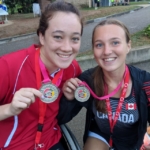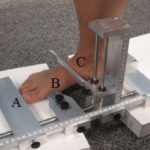Digitizing medicine is killing the profession
While you may think electronic medical records could only improve health care, health researcher Conrad Amenta says think twice. He says the increased workload that comes with EMRs is leading to doctor burnout – and even higher suicide rates.
| Listen on CBC Radio 10:13 |

The Flexner Report ― 100 Years Later. National Library of Medicine photo
The 180 with Jim Brown, CBC Radio May 14, 2017
More and more aspects of our lives are going digital.
Not only are we on our devices all day long, they have even made their way into the offices of our doctors — to record medical information.
But Conrad Amenta, who works in health policy research, thinks that the digitization of medical records is killing the profession of medicine.
“Doctors are burning themselves out and the technology that’s supposed to be making their jobs easier is making it harder.”

Health researcher Conrad Amenta says the workload involved with electronic medical records is contributing to doctor burnout. Provided photo, CBC
Amenta says that while electronic medical records offer the benefits of being able to track patients and their data, they haven’t been implemented correctly.
“The problem is that healthcare is incredibly complicated and doctors especially have rarely practiced in a standardized way, so what that means is doctors are increasingly expected to collect all of the information about everything using tools that aren’t really built around their needs and that don’t provide them with the information they need to do their jobs.”
Amenta argues that doctors spend a majority of their time inputting information, which is a major cause of burn out.
“It creates a bit of a vicious cycle… if you’re paid according to how many patients you see, and two thirds of your time is spent documenting patient visits, then you have to cram even more patients into what time you have in order to make your business viable, which means even more paperwork and even less time and so on, until the physician is finally burned out.”
Amenta says this burnout leads to high rates of physician death.
“We lose about the size of one medical school class to suicide every year.” – Conrad Amenta
Armenta says that high rates of suicide and clinical depression in the profession are only part of the problem.
“I’m also talking about this very old profession that has yet to go through what most professions have gone through in terms of being industrialized, being standardized, and that notion of medicine is also dying.”
He says that because medicine is so complicated and often regulated regionally, it is hard to create measurable standards across the profession as a whole.
“Think of it as a three-legged stool, the technology is just one leg on that stool. The technology allows you to measure variation in practice. The second leg on that stool is creating a positive, constructive culture with your doctors so that when somebody varies from your protocol you have a safe place to sit down and talk about it… and then the third leg on that stool is payment models.
We have seen a lot of movement towards paying doctors for the value they provide, instead of paying them for the volume they provide… and once we achieve that balance, I really do think it’s going to be possible to create an ecosystem where doctors harmoniously exist with tools that help them make sound diagnoses.”
![]() Source CBC Radio
Source CBC Radio
| Further reading |
Prevalence of Depression and Depressive Symptoms Among Resident Physicians: A Systematic Review and Meta-analysis, Mata DA, Ramos MA, Bansal N, Khan R, Guille C, Di Angelantonio E, Sen S. JAMA. 2015 Dec 8;314(22):2373-83. doi: 10.1001/jama.2015.15845.
Resident Depression: The Tip of a Graduate Medical Education Iceberg, Editorial, Schwenk TL. JAMA. 2015 Dec 8;314(22):2357-8. doi: 10.1001/jama.2015.15408.
Also see
What’s Digitization Doing to Health Care? Motherboard
Physician Burnout vs. Fulfillment: Why its not a Fair Fight The Happy MD
Fix the root cause of physician burnout. Not just the symptoms Kevin MD, MedPage Today
Depression burden weighs heavily on resident physicians CBC News






